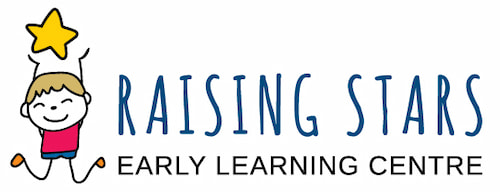Healthy friendships can enrich your life. Friendship and relationships have been proven to boost happiness, sense of connection, belonging, and purpose, and help you get through the challenges of life – regardless of age.
As children, friendship brings joy, support, and opportunities into a little one’s life, supporting both social and emotional growth. But making friends (and keeping them) is challenging at all stages in life.
As early childhood educators, everyday we’re exposed to the value that friendships add to a child’s development, self-esteem, and happiness, among other lifelong skills. We also understand how we, as educators, can help encourage children to build friendships in our care setting.
The importance of friendships in early childhood
Making friends is a big part of growing up. Friendships help children develop emotionally and socially, build a sense of belonging, and understand their own self-identity. During the process of building friendships, children increase their capacity for empathy and learn that not everyone is the same.
Every child is unique, and may have their own boundaries, ideas, beliefs, and preferences. When kids are exposed to these differences at a young age, they learn how to be respectful and accepting without judgment.
Through friendships, children can also learn how to navigate the world outside of their immediate family and home-life dynamic. Not only does this help children understand how to respect people’s differences, but also provide a support network beyond their family.
Early childhood educators can encourage children to play and work together to develop the lifelong skills that build relationships. When educators are committed to fostering a supportive and engaging environment, healthy friendships can develop and children learn how to listen, cooperate, take turns, share, and look at things from a different perspective.
How educators help children build friendships
Plan for group work and activities
Early childhood educators intentionally plan for the children to work together through lessons and activities. Small group or partner activities, such as ball games, group art collaboration, obstacle courses, and problem-solving games (scavenger hunt, puzzles, etc), encourage children to play cooperatively and work together to figure out the best outcome for the task.
When children have to work collaboratively, leadership, problem-solving, and listening skills kick in to achieve the joint goal, fostering a respectful relationship which can lead to a healthy friendship.
Change the structure of the room
Educators support natural interactions through the positioning of the room. Placing shared tables around the room with chairs provides children with a clear view of their peers, creating a comfortable floor section for reading, playing, and storytime, and positioning seating at mealtimes close to other children will bond incidentally. Even when children are working independently, having other children close by and in view can lead to social connection.
Teach collaborative play skills
As educators, we help children build friendships by teaching the fundamental skills required to form connections. While children will inevitably develop these skills through play over time, educators can speed up the process. Through frequent discussions about social skills, like sharing and taking turns, and acting it out through role play activities, children learn and practice these skills at a much faster rate.
Model good friendship
One of the easiest ways to encourage friendships in early childhood as educators, is to model the behaviour we are trying to encourage. In most cases, actions speak louder than words, and when we are teaching children how to positively interact with others, but aren’t doing it ourselves – how can we expect children to take us seriously? Being polite, kind, cooperative, and even having a laugh with other educators will exemplify what positive interactions can look like and how fun it can be.
How to navigate friendship conflict in early childhood
As with all relationships, conflicts can also occur in children’s friendships. Whether it be from a disagreement about which game to play, comments that may be insensitive or hurtful, or feelings of jealousy or insecurity arise. Regardless of the reason, navigating friendship conflicts in early childhood should be done sensitively, clearly, and collaboratively with the children involved to strengthen social and emotional development.
As educators, we help children resolve conflicts through simple and nurturing techniques. We teach children simple expressive phrases, such as ‘I don’t like that’ and ‘yes please’, to validate their feelings, keep it neutral, and ask questions, such as ‘how can we make this fair for everybody?’.
With 7+ years as early childhood educators for children, Raising Stars has extensive experience in navigating the ups and downs of friendships in early childhood. Our qualified staff understands the importance of friendships in children as young as 6-months old to 6 years old, and help foster healthy friendship development in the classroom, during mealtimes, and in the playground. To learn more about our nurturing and supportive educators, contact the Raising Stars team or visit one of our centres in Five Dock, Gregory Hills, or Moss Vale.

